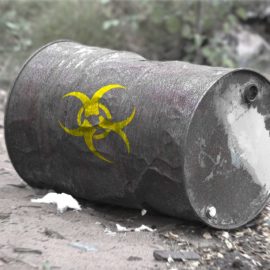
We think gas prices have gone too high, well the chemical industry agrees with us!
Rising natural gas prices have put Louisiana’s chemical companies on notice, the head of an influential state chemical lobbying group said Thursday. “We’re concerned,” Greg Bowser, president and CEO of the Louisiana Chemical Association, said in an interview following a presentation at the Certified Louisiana Economic Developer Program, hosted by the Louisiana Industrial Development Executives Association, or LIDEA. “It’s not keeping us up too late at night, but it’s getting there,” Bowser said. “It’s trending in that direction. We’ve seen it before.”
theadvocate.com
The sessions are to teach people about Louisiana businesses and how to sell their companies.
The LIDEA session taught economic development professionals the nuts and bolts of Louisiana’s economy so they can market their communities to potential new businesses. Bowser and Brad Lambert, deputy secretary of Louisiana Economic Development, spoke at length about the state’s chemical manufacturing and energy industries. Natural gas is a major feedstock for much of the state’s heavy industrial sector. The spot price for Henry Hub, the U.S. benchmark for natural gas prices, crossed the $7 per million British thermal units threshold in mid-April and hit $7.84 on Tuesday, according to the U.S. Energy Information Administration. That’s up from $4.03 per MMBtu in early February. Louisiana’s heavy industrial sector has benefited from lower natural gas prices in the U.S. compared to Europe and Asia. The U.S. uses natural gas as its primary chemical manufacturing feedstock, while Europe relies more on crude oil. Lower natural gas prices, compared to crude oil prices, give U.S. chemical companies a financial advantage, Bowser said. “Whenever that flips, you have a major problem in the chemical industry,” Bowser told the LIDEA crowd.
The chemical industry has its favorite price spot and as it gets above that spot they have to look at their bottom lines.
Louisiana’s chemical industry is in good shape when the natural gas price hovers between $4 to $5 per MMBtu, Bowser said. If it creeps up above $10, chemical facilities start to re-examine their bottom line, “especially if it’s going to be (that high) for a length of time.” Henry Hub hasn’t hit the $10 benchmark since July 2008. Global supply chain issues have impacted the price, but the primary driver of the increase has been Russia’s war in Ukraine, Bowser said. Supply has been limited as the U.S. and Europe have tried to shun Russian natural gas, as well as oil, to punish Russia’s economy over the war. “We didn’t have any indication it was starting to go up prior to that,” Bowser said. Lambert recalled a time in the mid-2000s when the price of natural gas shot up to $13 per MMBtu. “It seems like a lot of the work we were doing (at the time) was facility closure announcements in the ammonia industry, in the fertilizer industry,” Lambert said. “It is something to very, very much keep an eye on.”
These price increases are coming as there is a push to sent more natural gas to Europe.
The price increases also come at a time when the Biden administration is pushing to ramp up U.S. exports of liquefied natural gas, or LNG, to Europe to offset dependence there on Russian natural gas. Louisiana is an LNG export hub. Two of the nation’s largest export terminals, Sabine Pass LNG and Cameron LNG, are in southwest Louisiana, near Lake Charles. More terminals are planned for the state, including Venture Global and Driftwood LNG, among others. Oil and gas advocates have called for increasing LNG production and exports to curb the influence of Russian natural gas, though environmental advocates have raised concerns about the impact of LNG on the world’s climate, particularly in hurricane-weary southwest Louisiana. Bowser said there could be a “serious natural gas problem” here if exports “rise substantially.” “Right now, you can get a premium for it if you can get it over to those other countries. They’re paying a premium for it,” he said. “If you start shipping it that way and you’re a natural gas user here, you’re going to have problems.”
The question is, will the oil and gas industry talk to each other and maybe lower the gas prices? I doubt it.

